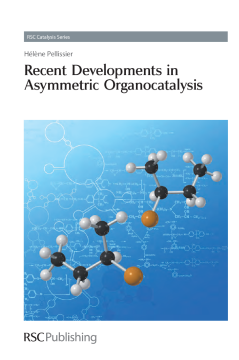
Additional Information
Book Details
Abstract
The aim of this book is to cover the very recent developments in asymmetric organocatalysis, focussing on those published since the beginning of 2008. The last decade has witnessed an explosive growth in the field of asymmetric organocatalysis with an impressive amount of new catalysts, novel methodologies, and applications in numerous reaction types, such as nucleophilic substitutions, addition reactions, as well as cycloadditions, oxidations, reductions, kinetic resolutions, and miscellaneous reactions. This very diverse and intensely developing field is too wide to cover in a single review. The timeliness of the book together with the expected impact is excellent, since nowadays asymmetric organocatalysis is arguably the most intensively developed field in organic chemistry. The book is designed to meet the demands of a postgraduate textbook,containing case studies and Q&A sections, as well as a practical book filled with facts and data useful as a working tool for the practitioner. The book is divided into ten sections, dealing successively with nucleophilic additions to electron-deficient C=C double bonds, nucleophilic additions to C=O double bonds, nucleophilic additions to C=N double bonds, nucleophilic additions to unsaturated nitrogen, nucleophilic substitutions at aliphatic carbon, cycloaddition reactions, oxidations, reductions, kinetic resolutions and desymmetrisations, and miscellaneous reactions.
Hélène Pellissier is at the CNRS, Marseille, France. She carried out her PhD under the supervision of Dr G Gil in Marseille and then joined the Centre National de la Recherche Scientifique in 1988. After a postdoctoral position in Professor KPC Vollhardt's group at Berkeley, she joined the group of Professor M Santelli in Marseille in 1992, where she focused on the chemistry of BISTRO and its large application in organic synthesis. There, she developed several new very short total syntheses of steroids starting with 1,3-butadiene and benzocyclobutenes.
